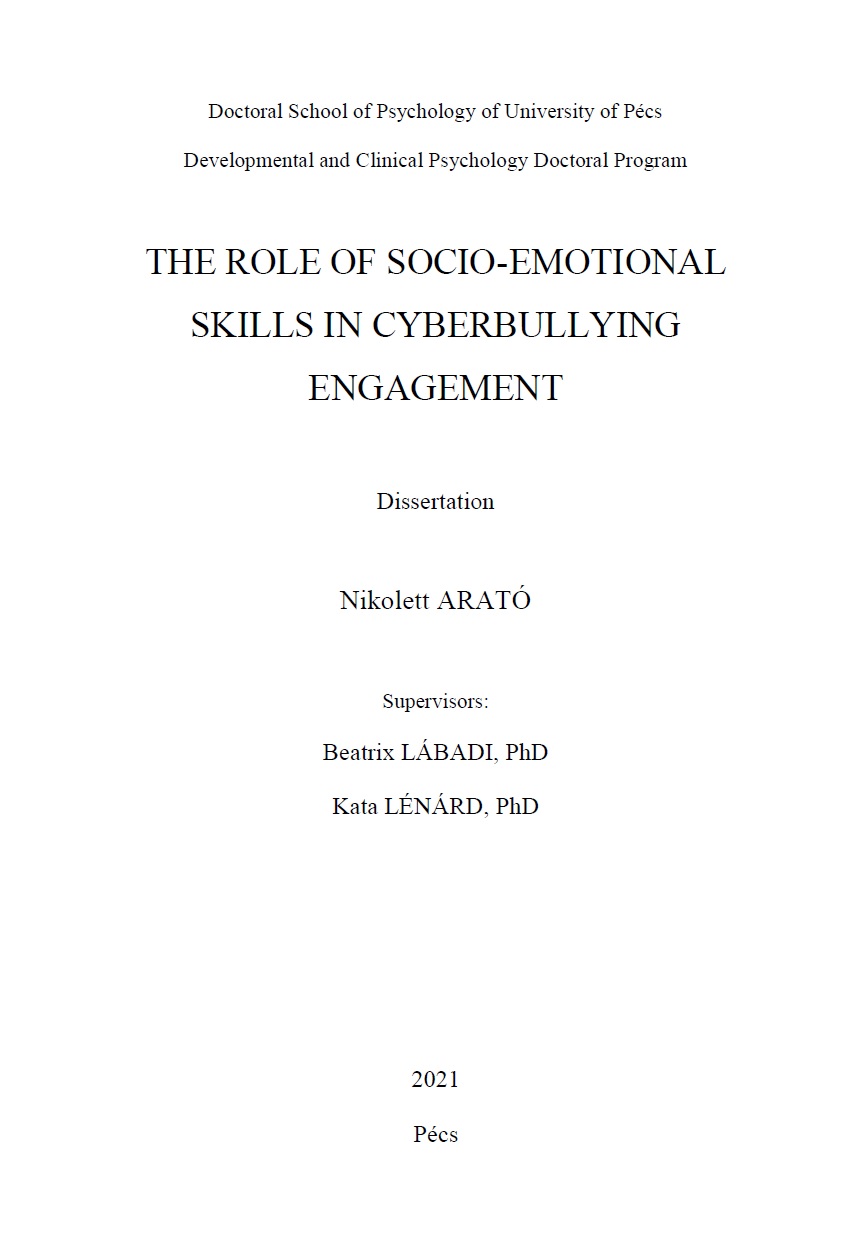The Role of Socio-emotional Skills in Cyberbullying Engagement
Abstract
Since the 1970’s traditional bullying, a specific type of school aggression is in the focus of both researchers and school professionals because it has serious consequences on the involved individuals and on the school community. As a consequence of the ongoing technological advancements, bullying also appeared on the Internet and this specific type, called cyberbullying is becoming more frequent and problematic in adolescents’ lives. However cyberbullying research is a new area in psychology, there is a considerable number of studies investigating the background mechanisms of cyberbullying engagement. If comparing the existing knowledge about traditional bullying and cyberbullying, one can see that there are comprehensive theories about the dynamics behind traditional bullying that prevention and intervention programs could have been built on. However, there is no such synthetized and comprehensive theory about the dynamics of cyberbullying. Hence, the aim of these doctoral studies was to discover possible variables (developmentally relevant factors and factors from already existing traditional bullying theories) that could be part of a comprehensive theory. The studies were investigating the role of socio-emotional skills (e.g. empathy, emotion regulation), moral development (e.g. prosocial moral reasoning, moral disengagement), and social factors (e.g. family functioning, perceived social support) in adolescents’ cyberbullying engagement and cyber bystander behaviour. Throughout the studies about the socio-emotional correlates of cyberbullying engagement, it became clear that cyberbullies and bully-victims are deeply similar: They were characterized by the same difficulties regarding their empathic skills and emotion regulation, as well as they both tended to use moral disengagement strategies. Furthermore, according to the results cyberbullying perpetrators and cybervictims were also similar in some social and socio-emotional factors: Both of them lacked social support from peers and imbalanced family cohesion characterized their families. As well as, they had similar difficulties with emotion regulation. At last, our results supported the relevance of Social Emotional Learning (SEL) theory and Bronfenbrenner’s theory in the explanation of cyberbullying engagement, but because of the limitations of cyberbullying research further studies are needed to develop a synthetized and comprehensive theory. Despite not supporting a comprehensive theory, the results of these doctoral studies still have implications for prevention and intervention against cyberbullying.

